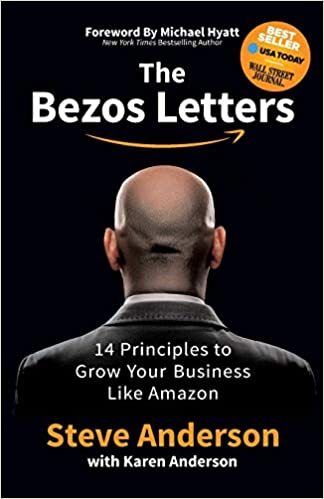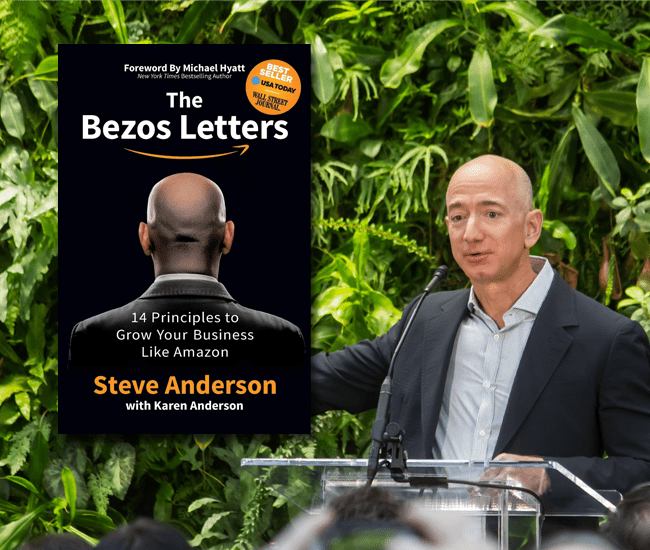The Bezos Letters
What's It About?
Last week it was announced that Amazon would be coming to New York City after the company pulled the brakes on a controversial plan to build a new Queens headquarters earlier this year.The new plan might be worse for Amazon in the short term, with billions on the line in opportunity cost, but it’s a PR victory for the company as well as for politicians who have railed against Amazon and its billionaire CEO Jeff Bezos.
As for Bezos himself, he understands that sometimes you have to lose money to make money. Valued at almost $110 billion, Bezos has made his fortune letting billions slide here and there.
Does this seem counterproductive? Yes, but it’s one of the principles that has led to his success, outlined in Steve Anderson’s new nonfiction book The Bezos Letters: 14 Principles to Grow Your Business Like Amazon (Morgan James Publishing).
Anderson makes a few things clear up front. First of all, he’s not making any statements of support for Bezos or Amazon. He believes that regardless of what we might personally think about the company, its success is undeniable.
Another point he makes is that he is uniquely qualified to address the path to building a company as lucrative as Amazon because he is viewing Bezos’ meteoric rise through a unique lens: that of a business and risk analyst.
In fact, the principles outlined in this book are not the Bezos Growth Principles, but the Anderson Growth Principles. Amazon exists as a sort of parable, an underdog story (if $300 grand in startup money qualifies one as an underdog — hey, at least it’s not a “small loan of $1 million”).
Anderson is interested in how Amazon grew from an online bookshop (still no small feat in the early days of the internet) to the ubiquitous powerhouse it is today.
The truth is, most startups fail, and the ones that succeed will never rise to the level of notoriety as Amazon. The blueprints for success are not laid out in Amazon’s trajectory, as the company evolved as e-commerce evolved and captured lightning in a bottle.
Anderson proposes, alternatively, that Bezos’ shareholder emails can be studied to see just where the man with a plan went right, from that first Day 1 email to the very end. He uses these emails to craft a compelling argument around 14 pillars of business.
You see, Bezos believes, as does Anderson, that you can always learn from Day 1 because in an ever-evolving business it’s always Day 1. Bezos says in his 2018 letter, “As always, I attach a copy of our original 1997 letter. It remains Day 1.” Anderson considers what this really means and concludes that Bezos refers to his initial shareholder letter every year because “Day 1 is a concept, not a date.”
Every one of the principles outlined in this book encourage entrepreneurs to take risks. To let themselves fail and fail big so that their next success can be exponentially greater.
Anderson wants businesses to know their markets so that they can dominate their markets. He wants CEOs to know where to invest to create momentum that will sustain itself (a concept called the flywheel), and above all else, he wants companies to take big swings that may or may not pay off. Because if they don’t pay off, there’s always another innovation. And if they do … well, that’s how the Jeff Bezos of the world are made.
For the budding entrepreneur, The Bezos Letters takes the framework of a company that took risks at every turn and even faltered at times and applies it to 14 indispensable principles that will transform your startup if applied properly.
Anderson knows the value of a calculated risk; reading this book is hardly a risk in itself. If you do pick it up, though, and your business grows into a powerhouse like Amazon, be sure to always remember the “early days.”
You’re in them now, and they’ll inform your journey wherever you go.
The Bezos Letters is now available for purchase.
Buy this Book!
Amazon




